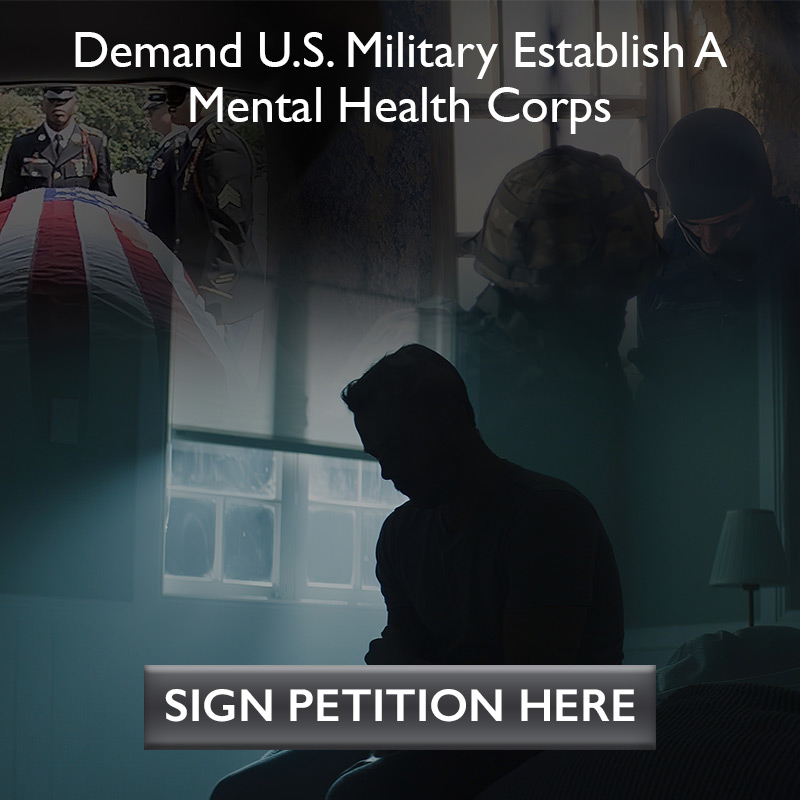I consistently hear from veterans, who feel comfortable opening up to me and my filmmaking team, that one of the biggest contributing factors to their emotional and psychological injuries, upon leaving their service life behind, is a loss of purpose.
A concise, simply stated concept, right?
A loss of purpose.
It’s a concept so perfectly in keeping, I’ve respectfully learned, with the no fluff, to-the-point, military discipline, training and thinking that is wired into the men and women who sign up for the job no one else wants to do.
Grief, in other words, seems almost an intangible premise for these tactical warriors. Although in truth, grief – grieving – is exactly what’s going on. A natural human response to loss of any kind.
No, what’s painfully graspable to this highly dedicated citizenry, as shoes replace boots, is a loss of purpose — a lack of direction upon exit; the sudden absence of task and goal.
“You were part of a ‘family’, a community dedicated to this highest and clearest purpose: protect the soldiers next to me, protect my country. There comes a day, if you are fortunate enough to make it home, that everything that you’ve trained to become and believe in has no meaning in civilian life. It’s hell not knowing who you are anymore.” — Marine Corps Veteran/two deployments to Iraq
To hear variations of this statement again and again has opened my heart hugely to the crux of the post traumatic stress and moral injury of war emergency crippling and needlessly killing so many valuable, skilled and whole-hearted human beings at this time.
Most especially hobbled, it seems, are the post 911 generation of soldiers, many of whom have served multiple deployments, and as a result sustained some pretty serious brain, central nervous system and overall injury to the psyche.
“Hell”, indeed – a pitch black forest where the lighted path of purpose can not be spotted to save your life, as is literally the case with the reported 22 suicides per day amongst veteran and active duty soldiers.
I didn’t know this until we started to make “Stranger At Home”. Apparently, there’s irrefutable evidence that after 220 days — give or take — of consecutive time spent in a high stress, military/combat zone that the human psyche actually breaks – shifts into a state of supreme imbalance that, without the proper help and healing can’t return to normal function.
I mean, think about it – a bone in your arm breaks. It has to get re-set to heal properly in order to be of full use again. In all circles of life, even the military, there’s no shame in breaking an arm. Likewise, there needn’t be shame in the breaking of a psyche.
Right?
Right, because as a real injury – which a broken psyche is — this requires the dignity and process of true mending, not half treatment measures.
That being said, we have learned from numerous veterans, that the go-to, prescribed method for handling these psychological and emotional injuries is with medication, with not a whole of other treatment choices made available.
It strikes me that this is like putting an ace bandage, instead of a cast, on a broken arm. I’m no doctor, but that probably won’t heal the injury effectively and may just mess things up even more.
I’m not knocking medication, as it can be helpful in de-intensifying the depression and anxiety symptoms of PTS, but it can also leave the wounded feeling “dull, flat, with no energy”, to use their words.
As one male veteran honestly shared, “high dosages of anti-depressants, anti-psychotics, anti-you-name-it also leave you impotent.” Yet another rough identity crisis for these already hurting people in search of a purpose again.
In light of the archaic stigma – still held by the military and in turn our society at large – that mental illness and injury are weaknesses of character and not real conditions, it’s no hard leap to understand why so many struggling veterans shut down and don’t reach-out for comprehensive help to heal their neurological, psychological, emotional and spiritual bodies.
Sadly, we’ve come to understand, that not seeking mental healthcare seems the better alternative for many veterans, rather than lose your potential option for future military employment. Your record gets a negative mark for admission of PTS symptoms. Likewise, the same concern carries over to attempting to land a civilian job.
Damn stigma.
Moreover and worse – to suffer the ridicule and humiliation of your commanding officer and fellow soldiers calling you a “pussy” (yeah, we’ve heard this) can drive soldiers – both active and veteran – to simply tough things out in isolation.
Taking matters into their own hands and unable to make balanced-minded decisions, many discontinue the dull-making, anti-erection meds and turn to alcohol and other drugs for relief.
Hell hath even more fury.
As you can imagine, devastating side effects ensue in this self-treatment measure for sure – not just for the injured, but also for every single loved one in their lives.
It’s my personal opinion and experience that the destructive ripple-out of substance addiction — physically, emotionally, spiritually, economically – from one, to an entire family, to society as a whole is the longest engagement of war, with untold casualties, that the human race has ever participated in.
So, how do we really, sincerely, passionately, compassionately, easily, effortlessly help to nurture the healing – in body, mind and spirit – of not only our veterans, but each and every one of us?
For me it comes down to loving yourself enough to know, without any doubt, that balance, well being and happiness is our inherent birthright, and that whatever traumas are experienced — for we all have them – can be brought into the light and healed.
The purpose of having purpose then is to know our worth fully and to BE that worthiness in all we do, all we say and all we create.
Namaste,
Beth
